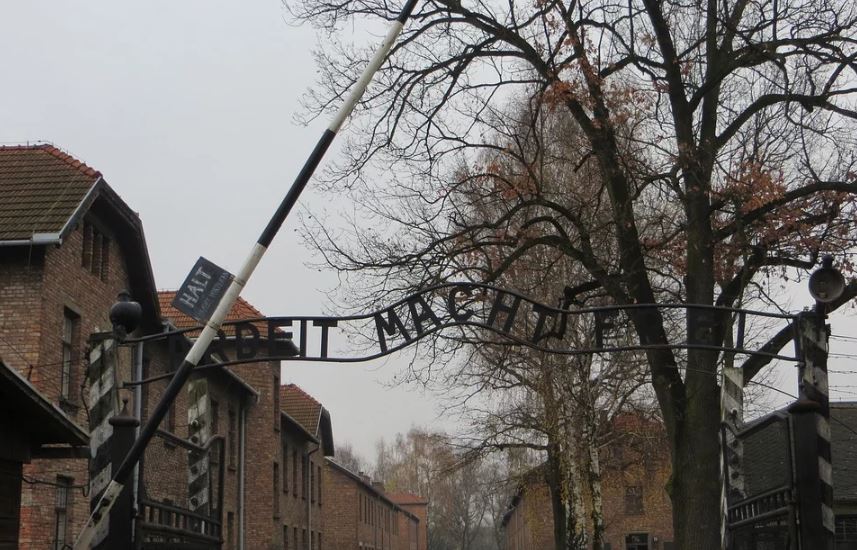In commemoration of the 75th anniversary of the liberation of the Auschwitz-Birkenau concentration and death camp at the end of the Second World War, about 100 pupils from 13 Belgian schools were invited by the War Heritage Institute to make the trip and see with their own eyes the site where genocide on an industrial scale took place.
From 5:00 AM, high school pupils from all over Belgium arrived at the Brussels Military Airport for a school excursion to the death camps of Auschwitz-Birkenau, in which they were joined by the Belgian Minister for Defence, Philippe Goffin, in the context of remembrance.
"If there is one lesson to be learned from history, it is that people have drawn very few lessons from history," Michel Jaupart, the Director-General of the War Heritage Institute, which aims for the conservation of historical military heritage for remembrance and education purposes, started off the excursion. His speech made it clear that this was not just an ordinary excursion, but something to always keep in mind, a symbol of what must never happen again.
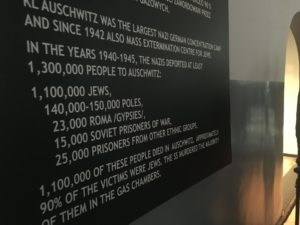
Credit: The Brussels Times
"Extremism is everywhere. Auschwitz is only one of the most tragic consequences of it, but extremism is everywhere. Throughout your life, you will be confronted with intolerance, lack of respect, racism, injustice. Just look at what is happening across the world today: increasing verbal and physical violence, increasing intolerance for all kinds of communities in society, increasing exclusion," Jaupart told the 17-year-olds from one European, six Flemish and six Walloon schools.
"Don't ever forget this journey. Tell your friends, your family. Tell your children when you're older. Tell them you looked history in the eyes today. We count on all of you to keep the memory alive. History repeats itself, we know that. So stay alert, and don't let it happen again," he concluded.
During the flight, the nervous energy among the students was palpable, and the Director-General's speech clearly made an impression. While before the speech most pupils were lamenting the need to get up in the middle of the night, afterwards they were quietly discussing what they would see that day.
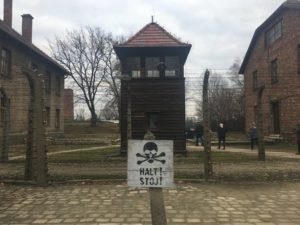
Credit: The Brussels Times
During World War II, roughly 1.3 million people from all over the continent were deported to the extermination camps of Auschwitz-Birkenau in Poland during the Holocaust. Approximately 1.1 million people, of whom 1 million were believed to have been Jewish, were killed at the camp, mainly in the gas chambers.
This was far from the only camp created by the Nazis, but because of Auschwitz' industrialisation of death, it became a symbol of all the victims of Nazism, and in particular of the Jewish people.
A total of 25,835 jews were deported from Belgium between August 1942 and July 1944, forced onto trains to Auschwitz from a transit camp at the former military barracks at Kazerne Dossin in Mechelen. Despite these high numbers, it took Belgium a long time to acknowledge its role in the deportations.
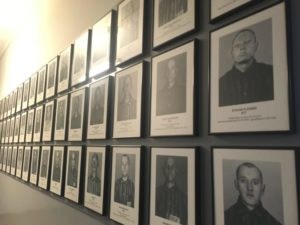
Credit: The Brussels Times
"It's a little unreal to know that so many people have suffered so much here," said Lotte, a student of the Scheppersinstituut in Mechelen, while the students entered the camp through the infamous 'Arbeit Macht Frei' gate. "This is such a [in]famous image, but seeing it in real life, standing here, it's very shocking. It is giving me goosebumps," she added.
During the guided tour, the students were quiet and clearly affected by the stories and the items on display. One student exited a room full of suitcases of the people who died almost as soon as he entered it. "It is so unreal," said Tomas, a pupil from a school in Brussels. "I can deal with the abstract information saying that over a million people died here, but the names on these suitcases makes everything so real. I did not expect to be so affected," he added.
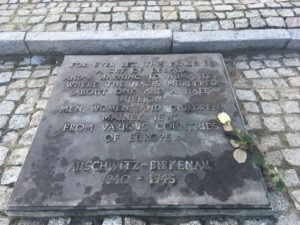
Credit: The Brussels Times
In the gas chambers, too, the students react strongly. "I think everyone should see this, and I think it should be a mandatory school excursion. Now that the people who have lived through this are slowly dying, we are the ones that have to keep telling these stories. This is not something we, or humanity as a whole, should be allowed to forget," said Sara, from Liège. "That being said, I am glad I am seeing this with my friends. I would not want to see this alone. It's like you can feel that something happened here," she added.
When, after a quiet and withdrawn flight back to Brussels, everyone left the plane at 8:00 PM, it was clear that the journey had its intended effect on the teenagers. “It is so important to realise that the focus on identity in politics today is not new at all, but was also used during the Holocaust. All this nonsense about ‘our’ people,” said Mathias, from a high school in the East Flanders province. “But there is no such thing. We are all just people,” he added.
Maïthé Chini
The Brussels Times

